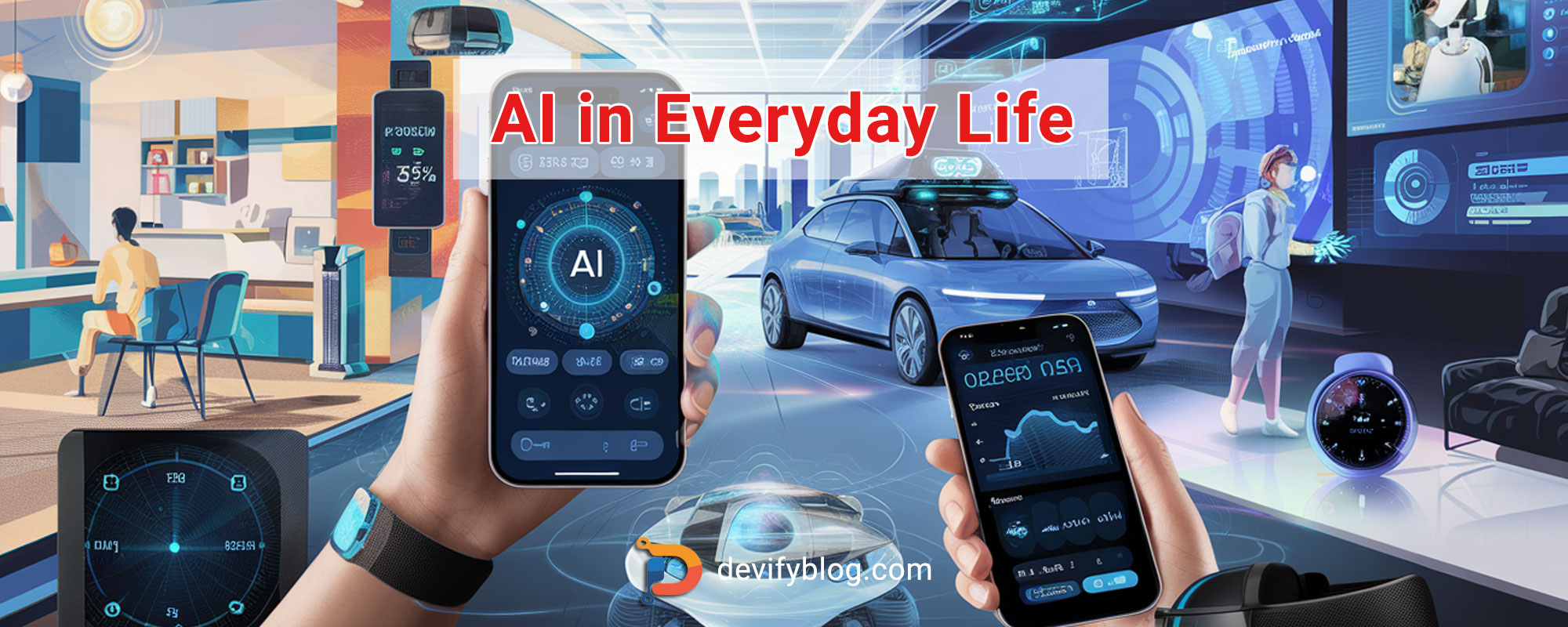Artificial Intelligence (AI) has become an integral part of modern life, giving complex algorithms and machine learning a new power that has become increasingly essential to our daily routines. From voice-activated assistants like Siri and Alexa to recommendation engines on platforms like Netflix and Amazon, AI is designed to make life convenient, efficient, and personalized. Its development has accelerated in recent years due to advances in computing power, data availability, and sophisticated algorithms.
Today, AI touches almost every aspect of life. In the field of health, AI helps in personalized treatment recommendations, while in communication it translates languages in real-time and filters spam. In homes, AI-powered smart devices are used for purposes such as lighting and security. AI has expanded manifold in the field of education and entertainment in the last few years. The main feature of AI is to increase the productivity and decision-making ability of the user. However, as AI is getting integrated into the daily life of the user, it is important to understand its ethical considerations and benefits. AI has become an integral part of people from any section of society to connect to the digital world.
1. AI in Personal Devices
AI has transformed personal devices in a big way, making them more intuitive, smarter, and more personalized. Voice assistants like Siri, Google Assistant, and Bixby operate features we depend on every day, and use AI to understand natural language, respond to commands, and control other AI-powered devices. Smartphones are also very well integrated with AI. For example, the camera, which everyone uses in their daily lives, is now getting a lot of benefits from AI, allowing automatic recognition of objects, scenes, and faces to optimize photos and enhance image quality. Features like AI-powered portrait mode, low-light adjustment, and real-time effects in the camera for better images are very useful.
AI-powered devices like Alexa and Google Home are becoming central to homes. These smart speakers enable users to control lists, manage security cameras, and organize household items in natural languages.
Smartwatches are also very popular in society. They track a variety of metrics - such as steps, heart rate, and sleep patterns - and use AI to analyze trends, giving users information about their health. This advancement in AI has made it an integral part of daily routine.
2- AI in Communication
AI has made communication efficient and accessible through digital interactions. Social media platforms such as Instagram, Facebook, and TikTok use AI-powered algorithms to create content based on users. Social media platforms create a personalized feed for the user by taking into account likes, comments, and shares. This personalized feed helps the user to show posts and ads that are tailored to his or her individual interests. This not only increases user satisfaction but also strengthens the platform's ability to effectively target ads.
AI in email service improves communication by filtering spam and providing instant support through chatbots. Big companies like Gmail and Outlook scan and filter messages using AI to ensure organized content in the inbox.
Language translation is a field where AI has made significant progress and has broken language barriers by doing real-time translation. Big AI tools like Google Translator use advanced AI to analyze text data, providing accurate translations in dozens of languages. Helping us connect, understand, and engage more effectively in a globalized world.
3- AI in Entertainment
AI has revolutionized the entertainment world. Streaming platforms like Netflix, Spotify, and YouTube analyze millions of data points to provide users with a customized experience, increasing engagement and satisfaction. In gaming, AI powers non-player characters (NPCs), creating more interactive and immersive experiences. Game NPCs now adapt to player actions, making gameplay more realistic and challenging.
4- AI in Health and Wellness
The role of AI in health and wellness devices is growing rapidly. It is used in personal monitoring, diagnosis, and telemedicine. Devices like the Apple Watch and Fitbit track health metrics like heart rate, sleep patterns, and physical activity. These devices use AI to analyze the data, giving users information about their fitness levels and suggesting lifestyle changes. AI also helps doctors analyze images like X-rays and MRIs, where AI tools analyze the images and provide suggestions.
In conclusion, AI has become a part of our daily lives. It has increased convenience as well as efficiency in many areas. From helping us make better choices in entertainment and transportation to transforming healthcare, education, and e-commerce, AI has played a vital role in this modern world. However, while AI is providing many benefits to society, ethical implications and privacy concerns also need to be taken into account. Let us look together at how AI is shaping our lives and future.





Login to leave a comment.